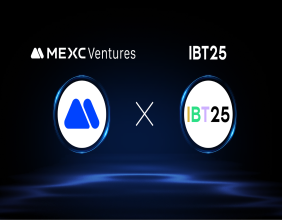Investing your money is not just a financial strategy; it's a pivotal move that can potentially multiply your hard-earned wealth and open up avenues for achieving your long-term financial goals. While the notion of investing is widely acknowledged, the critical question often revolves around what to invest in. This guide aims to demystify the world of investments, exploring popular investment vehicles, their pros and cons, and providing actionable steps to embark on your investment journey. For insights and resources specific to the United States market, Kalkine USA offers valuable information to enhance your understanding and guide your investment decisions
Understanding the Significance of Investing
Investing is not just about accumulating wealth; it's a powerful tool that can work for you, creating opportunities for financial growth over time. A well-crafted investment portfolio is not only a means to secure your retirement but also a way to fund your child's education or pursue other significant financial objectives. Let's delve into the importance of investing and explore some of the most prominent investment options.
Advantages of Investing:
- Wealth Building: Over time, investments have proven to be a reliable avenue for substantial wealth creation.
- Diversification: By spreading investments across various asset classes, you can effectively manage and mitigate risks.
- Passive Income: Certain investments, such as dividend-paying stocks or real estate, can generate regular income.
- Financial Goal Achievement: Investing empowers you to allocate funds strategically, aligning with specific financial objectives.
Popular Investment Vehicles: Exploring the Landscape
1. Stocks:
Almost everyone should own stocks or stock-based investments like exchange-traded funds (ETFs) and mutual funds (more on those in a bit). Stocks have consistently proven to be the best way for the average person to build wealth over the long term.
U.S. stocks have delivered better returns than bonds, savings accounts, precious metals, and most other investment types over the past four decades. Stocks have outperformed most investment classes over almost every 10-year period in the past century and have averaged annual returns of 9% to 10% over long periods of time.
To put returns like this into perspective, a $10,000 investment compounded at 10% for 30 years would grow to nearly $175,000. Why have U.S. stocks been such great investments? Because, as a stockholder, you own a business.
2. Exchange-Traded Funds (ETFs):
If you're worried about researching and selecting individual stocks, an alternative is to invest (either exclusively or partially) in ETFs and/or mutual funds. For example, if you invest in an S&P 500 index fund, your money will be spread out among the 500 companies that make up the index. So, if any one of them were to fail, it wouldn't be devastating.
3. Mutual Funds:
Mutual funds are similar to ETFs. They pool investors' money and use it to accumulate a portfolio of stocks or other investments. The biggest difference is that ETFs trade on major stock exchanges, and you can buy shares whenever the stock market is open. Mutual funds only price their shares once a day and aren't nearly as liquid.
4. Bonds:
Over the long term, growing wealth is the most important step. But once you've built that wealth and gotten closer to reaching your financial goal, bonds -- which are loans to a company or government -- can help you stay there.
There are three main kinds of bonds:
- Corporate bonds issued by companies
- Municipal bonds issued by state and local governments
- Treasury notes, bonds, and bills issued by the U.S. government
You can buy individual bonds through most major brokers, but for most investors, the best way to go is to buy ETFs and mutual funds that invest in bonds on your behalf.
5. High-Yield Savings Accounts:
Savings accounts offered by branch-based banks are notorious for paying minuscule interest rates. However, some excellent banks, primarily based online, offer very competitive rates -- to the point that they can be considered investment-worthy in many cases.
6. Certificates of Deposit (CDs):
Many reputable banks offer some excellent high-yield certificates of deposit (CDs) that pay guaranteed yields for anywhere from a few months to five years or more. Unlike savings accounts, CDs can allow you to lock in a specific yield for a set period.
7. Real Estate:
Like owning great companies, owning real estate can be a wonderful way to build wealth. In most recessionary periods throughout history, commercial real estate has been countercyclical to recessions. It's often viewed as a safer, more stable investment than stocks.
There are ways for people at almost every financial level to invest in and make money from real estate. The most obvious is to buy a rental property, which can be a great way to build wealth and create an income stream -- but it isn't the best fit for everyone.
Fortunately, there are alternative ways to invest in real estate, many of which are much more passive than actually becoming a landlord, such as real estate investment trusts (REITs).
Publicly traded REITs are the most accessible way to invest in real estate. REITs trade on stock market exchanges just like other public companies. Here are some examples:
- American Tower (AMT -0.69%): owns and manages communications sites, primarily cell phone towers.
- Public Storage (PSA -0.36%): owns almost 3,000 self-storage properties in the U.S. and Europe.
- AvalonBay Communities (AVB 1.04%): is one of the largest apartment and multifamily residential property owners in the U.S.
REITs are excellent investments for income since they don't pay corporate taxes as long as they pay out at least 90% of net income in dividends.
8. Cryptocurrencies:
Cryptocurrencies are a relatively new form of investment vehicle. Popular examples include Bitcoin (BTC 4.69%) and Ethereum (ETH 4.03%). If you have knowledge of cryptocurrencies, they can be incorporated into a diversified investment portfolio.
Embarking on Your Investment Journey: A Strategic Approach
1. Set Clear Goals:
Define financial objectives and establish a timeline for achieving them, whether it's retirement, education funding, or other goals.
2. Assess Risk Tolerance:
Determine your comfort level with investment risk by considering factors such as age, financial goals, and personal temperament.
3. Create a Budget:
Evaluate your financial situation to identify funds available for investment, ensuring it aligns with your overall budget and financial health.
4. Choose Investment Vehicles:
Select investment options based on your goals, risk tolerance, and budget. Consider diversifying your portfolio to spread risk and enhance long-term returns.
5. Diversify Your Portfolio:
Spread investments across different assets to reduce risk. Diversification ensures that the performance of one investment doesn't disproportionately impact the entire portfolio.
6. Consider Time Horizon:
Align your investments with your time horizon. Short-term goals may warrant a conservative approach, while long-term objectives can tolerate more aggressive investment strategies.
7. Adapt to Your Investment Amount:
Tailor your investment strategy to the funds available. While even a modest amount can initiate your investment journey, larger amounts offer more diversified opportunities.





